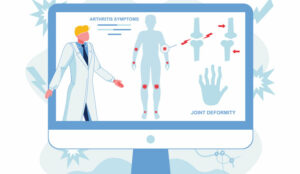Sunny Dhami of RingCentral shares his advice for running a great customer service coaching course online.
Think back over your own experiences as a consumer: which ones really stand out in your mind? The chances are that your most memorable customer service experiences are both the very best and the very worst. Those which fall somewhere in the middle tend not to stick in the mind so much.
The point here is that it’s customer service that really makes the difference, for good or ill, to a brand’s reputation. It’s not a company’s promotional material, or its trendy decor that remains in the memory, but the standard of the service (and, where applicable, the products you purchased) that stays with you for the long term.
So, with that in mind, it’s clear that customer service skills are massively important. Any company which prides itself on providing customers with exceptional customer care has to prioritize developing the service skills of its staff. And, of course, culture matters almost as much when it comes to ensuring excellent customer service standards.
It’s all about inculcating an exceptional ethos, one of dedication to customer needs and satisfaction. There’ll always be difficult customers – sometimes with justification, sometimes less so – and it’s the responsibility of employers to prepare staff for these situations.
It’s also important to remember that customer expectations are changing all the time. The rise of the internet, and the huge number of options available to consumers today, mean that people expect far higher standards than they once did. They expect their favourite brands to understand their needs and preferences intimately, and to be attentive to them.
Those businesses – whichever sector they’re in, whether it be retail, health and social care, or events and hospitality – which fail to take account of this, risk putting themselves at a major competitive disadvantage. Their more nimble and responsive rivals will outstrip them in all areas. Even when working from home in the COVID-19 era, customer service matters a great deal.
So, taking all that into consideration, it’s no surprise that more and more businesses are instructing their staff to take online courses in customer service training. These customer service courses provide staff with a range of insights in everything from communication skills to handling customer complaints – covering all the most important bases of customer service.
In this guide, we’ll take a closer look at online customer service courses including some free courses, what their potential benefits might be, the different types of training available, and the kind of skills needed for outstanding customer service.
What Is Online Learning?
In recent years, there’s been a proliferation of free online courses across a huge range of different areas – from academic disciplines to customer service training.
Higher education institutions are increasingly offering online courses to help people acquire new skills and boost their job prospects in the employment market. This year, too, many A-levels got completed remotely.
The principle isn’t much different when it comes to taking a customer service course online than if you’re studying data science or digital marketing. A distance learning course like this gives people the opportunity to learn new skills at their own pace, and at a time that works for them.
Online Learning and Customer Service
High quality customer service, as we’ve discussed, is hugely important to the customer experience. A customer who feels they’ve received great service is much more likely to come back again, whereas the opposite is true for consumers who’ve had a bad experience. Both, too, may share their experience on social media.
Customer service training, then, involves teaching staff the kinds of skills (including personal skills) and competencies which are likely to serve them well in their work. You might think that it’s all pretty self-explanatory and that there’s no real need for training – after all, it’s not computer science, don’t you just have to be polite? – but there really is much more to good customer service than that.
The reality is that working in customer service can be a very complex business. Anyone who has years of experience of working in a shop, as a receptionist, or providing table service (just to give a few examples) will tell you that no two days are the same. The job is diverse because customers themselves are diverse.
Some people are happy with the most basic service because they prefer to be left more or less to their own devices, whereas others like to have service staff cater to their every whim.
A customer service training course – even a short course – can help prepare staff for this kind of thing, and give them a better idea of what to expect on the job. Even experienced staff can benefit from taking a customer service course online – it’s sure to provide them with new insights and tips which they can then put to good use.
Benefits of Customer Service Training
The benefits of customer service training are manifold. Firstly, it’s an essential way of showing new recruits the ropes via an accessible learning environment.
As we’ve just alluded to, few people who come into customer service with no previous experience in the profession – and it is important to remember that it’s a profession, and requires real skill – have any real idea of what they can expect from it.
Customer service training provides guidance in how to deal with customer needs, including customer complaints, and helps to sharpen those interpersonal skills that make such a big difference. That’s not only in the short term, but also in the participant’s overall professional development.
A workforce that understands the principles of customer service and has a good idea of what they can expect when working in the field is worth its weight in gold. The most important point to consider here is customer retention.
Any experienced businessperson, in whatever industry, recognizes that it’s regular customers and clients who form the bedrock of a successful business.
In today’s business environment, companies are increasingly doing battle with one another on the terrain of customer and user experience. It’s all about who can keep consumers happy and willing to stick around.
Who Can Benefit From Customer Service Training?
Customer service training gives staff an opportunity to develop and freshen their skills. It can, for example, guide them through a series of common (and not-so-common) scenarios that they’d be likely to encounter when working in customer service. That’s among many other relevant subject areas.
This will leave them in a far stronger position to deal with the various challenges they experience. Not just in ensuring that customer needs and demands are met, but also handling those sticky situations where the customer isn’t happy with either the standard of service they’ve received or the quality of the product they’ve bought. These situations are the making of some people and, frankly, the breaking of others.
There is often a tendency, however, to look at customer service skills as something of a lesser priority. Some employers don’t necessarily appreciate their importance, and treat them as a bit of an afterthought. However, it’s essential to emphasize that the customer service experience can make all the difference.
It’s what could mean winning a loyal customer who sticks with your business for years, or creating one who has a lousy time and comes away nursing a grudge against it (they may leave a stinking customer review online, and these can do real damage).
So, the point here is that it’s not just staff who benefit from good customer service training – it’s their employers as well. Especially if you find the right course for your staff.
An attentive, diligent, and conscientious team is one that’s far better equipped to ensure customers have a great experience. This is why every member of staff should go through at least one customer service course.
Indeed, given how dramatically customer expectations have changed over the last couple of decades, it’s a good idea to keep sending staff on online courses to help them continually hone and sharpen those customer service skills.
Skills Needed for Customer Service
If you’re an employer or work in human resources, there are certain key skills you should be looking for when hiring staff. If you really pride yourself on excellent customer service, then you should take great care and consideration during the hiring process.
You must start out with a clear idea of what you’re looking for, and the kind of skills that will stand new recruits in good stead. Obviously, new hires don’t have to be the complete package right away – don’t expect them to be experts in project management or other high-end competencies. You can develop and sharpen skills through customer service training.
Here’s a list of several of the most important skills needed for excellent customer service.
- Communication skills: One thing is for sure, if your staff can’t communicate with customers and one another in a clear, calm, and effective manner, they’re probably going to have a hard time working in customer service. Communication skills are hugely important, not just to ensure that customers get what they want, but also that every member of the team knows what their responsibilities are.
- People skills: As we’ve noted in the previous point, the members of your team need to be able to communicate clearly and politely both with one another and with customers. This is a prerequisite for working in a customer-facing role. But there’s more to this than just simple communication; they also need to have good people skills in general (admittedly a more nebulous term). Are they likely to be able to forge strong working relationships with their colleagues? Are they a team player?
- Resourcefulness: Working in customer service requires you to have the ability to think on your feet. Don’t forget what we said earlier about customers – they’re a diverse bunch, and they have all sorts of (often quite peculiar) needs. Your customer-facing employees will therefore need to have excellent problem-solving skills, so that they can deal with any unorthodox or unusual queries that might come their way. Take the Coronavirus outbreak, for instance. It will have seen brand-new queries on a whole different range of subjects come to prominence.
- Passion: Not a skill as such, but passion can go a very long way in customer service. A member of the team who feels genuinely passionate about what they do (and about what you do as a business) is hugely valuable. Those who buy into your ethos as a business and pride themselves on providing the best customer service are sure to be real assets to your business.
Types of Customer Service Training
Customer service training encompasses a lot of different aspects. There’s everything from learning how to operate the tills, to dealing with tricky or demanding customers, and keeping a lid on potentially volatile situations. There are high-level courses and those for beginners. You can choose the learning experience that best suits the participants.
There are, however, three main categories of customer service training:
- New hire training – as the name suggests, showing new recruits the ropes and bringing them up to speed.
- Quarterly or yearly customer service training – periodic refresher courses, for example.
- Emergency or time-sensitive customer training – courses to address a particular shortcoming or issue in a short space of time.
Let’s go into more detail about these types of customer service training.
- New hire training: This is the onboarding training given to new recruits as they join the team. This kind of training is designed to help staff get acquainted with their colleagues, understand what their responsibilities are, and what’s expected of them. They’ll also familiarize themselves with any equipment or tools they’ll be using in the job, and get acquainted with the products and services offered by their new employer.
- Quarterly or yearly training: It goes without saying that working in customer service constantly throws up new challenges. We’ve already talked about how customer expectations have changed quite dramatically in a fairly short period of time. This is why it’s a good idea to hold customer service training courses every so often (quarterly, yearly, or at some other interval, such as every six months). This will help to ensure that everybody knows what’s required of them, from their employer and from customers alike. These are best thought of as continuing professional development or CPD courses.
- Emergency or time-sensitive training: Sometimes an issue may emerge (or a shortcoming may become apparent) and you find that your team is in need of urgent training in a particular area. Time-sensitive training is a way of addressing these issues – whether it be a product recall, staffing emergency, or simply the launch of a new product or service. These online courses also provide your team with additional skills and knowledge at short notice. For instance, you might have needed to enrol staff in a course on health conditions at most risk from COVID-19.
Top Customer Service Training Courses
There are many online courses in customer service to choose from. If you’re looking to take customer service training yourself, or you want to advise members of your team to do likewise, it’s important to take the time to assess the various options at your disposal. You might, for instance, start by checking out institutions like the Open University or the British Council.
There are countless training providers, though, offering a huge variety of online courses. Weigh up the requirements of your business – what skills would your team benefit from learning, and what existing shortcomings do you have? – and look for courses that can help you address them. Here are some courses you might want to consider:
- High-Speed Training: This online customer service training course, which costs £25 plus VAT, is CPD-accredited. With a duration of about two hours but no specific time limits, this course is conducted entirely online.
- Brentwood Open Learning College: Brentwood’s free course in customer service training covers a wide range of customer service fundamentals, including understanding customer needs and building long-term relationships with consumers.
- LearnDirect: learndirect offers a course on the importance of customer service skills, including the basics of excellent consumer service, why a good customer service culture is so crucial, and the difference between good and bad service.
Look at your training provider’s track record before you choose them, and make sure you look at past reviews from people who’ve already used their service.
Tips for Customer Service Learning
When learning new customer service skills or honing existing capacities, it’s important to be diligent and open to new insights. You might have worked in the sector for many years, but that doesn’t mean you don’t still have plenty to learn.
Customer service continues to evolve – and at an ever-quickening pace – so, however much experience you have in your back pocket, be humble enough to learn from others.
Whether it’s learning new product-related or technical skills or simply strengthening team spirit and camaraderie through virtual team-building exercises, lifelong customer service learning can be incredibly important and valuable – to employers, employees and consumers equally.
Conclusion
Hopefully, this guide has given you a good idea of what you should be looking for from online courses in customer service, and what benefits they might provide.

Sunny Dhami
The crucial point to consider is one we’ve already made: if you aren’t prepared to seek out new ways of learning and new methods of training, you’ll find that your competitors do. This means they’ll be in a good position to leave your business behind.
Exceptional standards of customer service can bring in real rewards. It’s up to you to ensure that your team has the knowledge and the tools necessary to do the job properly. Online training courses could be the secret of your future success.
Author: Robyn Coppell
Published On: 27th Aug 2020 - Last modified: 2nd Sep 2020
Read more about - Guest Blogs, RingCentral



































